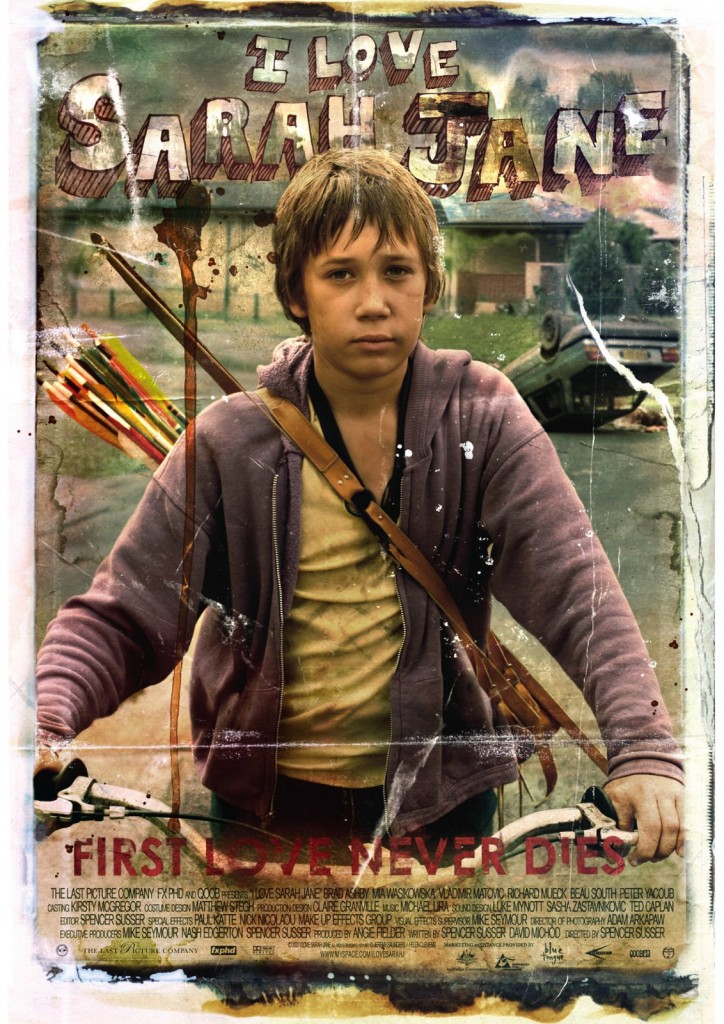I Love Sarah Jane from Qoob TV on Vimeo.
.
.
Spencer Susser’s I Love Sarah Jane
Introduced by R. W. Gray
.
In this special post-Halloween edition of Numéro Cinq at the movies, we’re featuring “I Love Sarah Jane” by Spencer Susser. Viewer warning: there’s some gore here, but the originality of the story makes it worth it.
I’m not a zombie fan by trade, but have come to appreciate the genre because of its apocalyptic questioning of who we really are under our (sometimes few) civilized masks and what really matters to us when the those masks fall away.
In zombie post-apocalyptic worlds, our cultural values and beliefs become painfully transparent, especially when it comes to what filmmakers think about women and how they will fare when push comes to zombification. The long history of zombie films is a long history of frustrating representations of women: in early voodoo zombie films like White Zombie and I Walked With a Zombie women were more easily enslaved than men, considered property and found porous and malleable (so more susceptible to zombie enslavement).
to Romero’s first female protagonist in Night of the Living Dead, the canonical Barbara who spent most of the film in a catatonic state, unable to do anything for herself or others (though Romero redressed this in the remake he wrote twenty two years later so Barbara could kick some butt); from the more recent graphic novel series The Walking Dead where the women are scared so they vote for the men to lead them, to the apparently modern Zombieland, which offers two kick ass young women who kick ass but then spend the third act of the film crying out for help, fully embracing the damsel in distress cliché. Women in zombie films are useful mostly to uphold, facilitate and motivate male protagonists on their journeys to become heroes.
Into that canon walks the young woman in ”I Love Sarah Jane.” Well, first walks in Jimbo, a candidate for besot reluctant hero. Jimbo, Sarah, and a trio of other boys exist in a dystopian zombie apocalypse with strong overtones of Lord of the Flies and the only adult we meet is a zombie chained to the ground.
We meet Sarah Jane –- the incredibly talented Mia Wasikowska (In Treatment, Alice in Wonderland)—sitting on a couch watching the news of the zombie apocalypse, quiet and associated with the domestic sphere in comparison to the wild boys running amok in the yard torturing a zombie on a chain and generally acting uncivilized. In this suburban zombie apocalypse, Sarah Jane looks to be Wendy to the lost boys, especially the besot Jimbo.
This narrative should go some pretty predictable places: the geeky non-alpha guy who likes her should have to face down the bully, save her and the day, and become a hero and an object for her affections in the end.
Spoiler alert: read no further until you’ve watched the film. Because Sarah Jane is done with the couch and the silly boys and, I’d suggest, the whole zombie genre that lets geeky boys become sadistic lost boys and makes girls stand by and watch like helpless victims. She struts out into the yard, makes two merciful killings, and one is even her father in an oddly Oedipal way. And it’s not simply that Sarah Jane has supplanted the male hero or taken on masculine traits, though. It’s that she does the most merciful thing. And mercy, in this genre, is radical.
And it makes me, like Jimbo, fall more in love with Sarah Jane.


